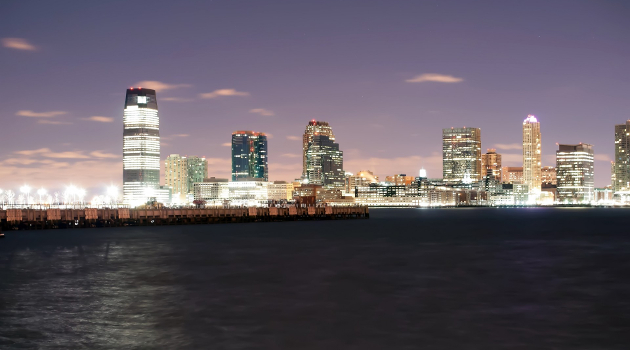New Jersey is a tragic example of state veering in the wrong direction.
Back in the 1960s, it was basically like New Hampshire, with no income tax and no sales tax. State politicians then told voters in the mid-1960s that a sales tax was needed, in part to reduce property taxes. Then state politicians told voters in the mid-1970s that an income tax was needed, again in part to reduce property taxes.
So how did that work out?
Well, the state now has a very high sales tax and a very high income tax. And you won’t be surprised that it still have very high property taxes – arguably the worst in the nation according to the Tax Foundation.
But you have to give credit to politicians from the Garden State.
They are very innovative at coming up with ways to make a bad situation even worse.
In an article for City Journal, Steven Malanga reviews the current status of New Jersey’s misguided fiscal policies.
Relative to the size of its budget, New Jersey’s borrowing is by far the largest. Jersey plans to cover most of the cost of its deficit with debt by tapping a last-resort Federal Reserve lending program. New Jersey is already the nation’s most fiscally unsound state,
according to the Institute for Truth in Accounting. It bears some $234 billion in debt, including about $100 billion in unfunded pension liabilities. A recent Pew study estimated that, between 2003 and 2017, the state spent $1 for every 91 cents in revenue it collected. …Before the pandemic, Murphy had proposed a $40.7 billion budget for fiscal 2021, a spending increase of 5.4 percent. …The administration has taken only marginal steps to reduce spending by, for instance, delaying water infrastructure projects. Many other cuts Murphy has announced involve simply shelving plans to spend more money.
The very latest development is that the state’s politicians want to exacerbate New Jersey’s uncompetitive tax system by extending the state’s top tax rate of 10.75 percent to a larger group of taxpayers.
The New York Times reports on a new tax scheme concocted by the Governor and state legislature.
New Jersey officials agreed on Thursday to make the state one of the first to adopt a so-called millionaires tax… Gov. Philip D. Murphy, a Democrat, announced a deal with legislative leaders to increase state taxes on income over $1 million
by nearly 2 percentage points, giving New Jersey one of the highest state tax rates on wealthy people in the country. …The new tax in New Jersey…is expected to generate an estimated $390 million this fiscal year… With every call for a new tax comes criticism from Republicans and some business leaders who warn that higher taxes will lead to an exodus of affluent residents.
As is so often the case, the Wall Street Journal‘s editorial does a good job of nailing the issue.
New Jersey Gov. Phil Murphy and State Senate President Steve Sweeney struck a deal on Thursday to raise the state’s top marginal tax rate to 10.75% from 8.97% on income of more than $1 million.
Two years ago, Democrats increased the top rate to 10.75% on taxpayers making more than $5 million. …New Jersey’s bleeding budget can’t afford to lose any millionaires. In 2018 New Jersey lost a net $3.2 billion in adjusted gross income to other states, including $2 billion to zero-income tax Florida, according to IRS data. More will surely follow now.
The WSJ is right.
As shown by this map, there’s already been a steady exodus of people from the Garden State. More worrisome is that the people leaving tend to have higher-than-average incomes (and it’s been that way for a while since New Jersey’s been pursuing bad policy for a while).
I’ll add one additional point to this discussion. One of the best features of the 2017 tax reform is that there’s now a limit on deducting state and local taxes when filing with the IRS.
This means that people living in high-tax jurisdiction such as California, New York, and Illinois (and, of course, New Jersey) now bear the full burden of state taxes.
In other words, New Jersey’s politicians are pursuing a very foolish policy at a time when federal tax law now makes bad state policy even more suicidal.
———
Image credit: alex grichenko | CC0 Public Domain.



